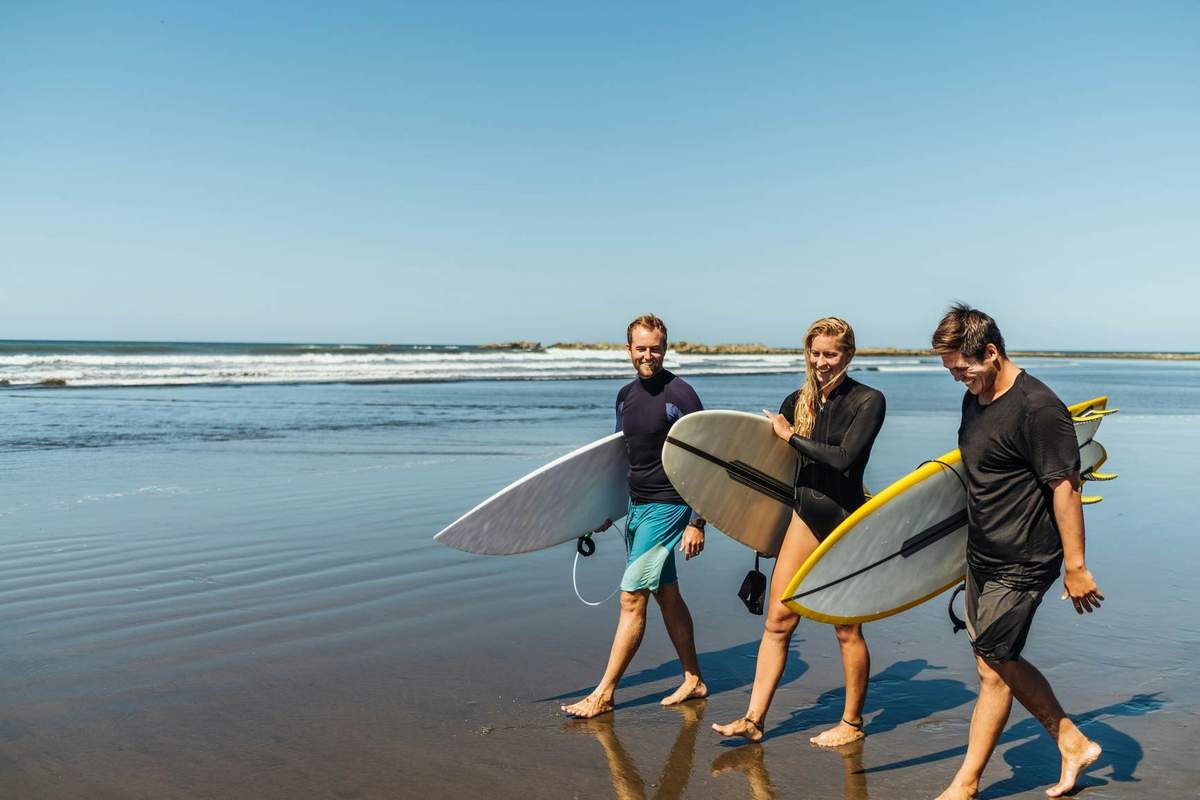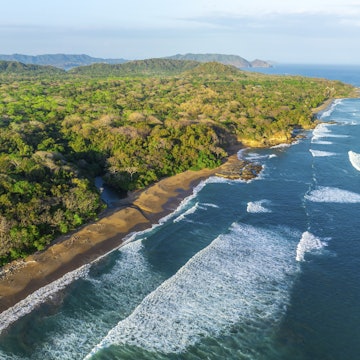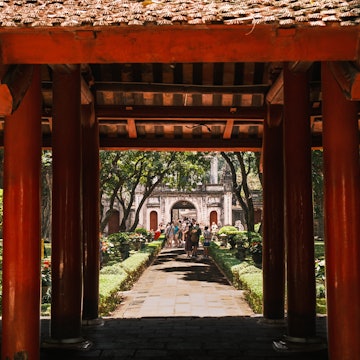
Belize or Costa Rica? How to choose your perfect Central American getaway



The white sands of Ambergris Caye in Belize, or the jungle waterfalls of Costa Rica? © iStock; Stocksy
At any time of year, Central America astounds with its gorgeous beaches, exciting hikes, ancient ruins and – above all else – extraordinary natural beauty.
As you mull a getaway to this region of small countries and huge pleasures, two of its most welcoming destinations will surely rise to the top of your list: Belize and Costa Rica.
Since it's incredibly difficult to choose between this idyllic pairing, two of Lonely Planet's esteemed writers have come together to make the case for their respective favorite. Now the final decision is up to you.
It's just got to be Belize
Carolee has called Belize home for over 30 years and she lives, writes and explores this wonderful nation as a freelance travel writer.
Ask yourself: why are Costa Ricans (known as Ticos) getting a little salty over little Belize, more than two times smaller? Perhaps because their country, long known as the adventure capital of Central America, has found some healthy competition against a younger, wilder, English-speaking cousin.

Belize might have played shy in the past. Now? It’s impossible to be low-key about the Great Blue Hole – which can be seen from space – or the world’s first and only jaguar preserve, Cockscomb Basin Wildlife Sanctuary. Even the small stuff shines: a wildlife documentary recently called the Belize Zoo “the best little zoo in the world.”
Ticos won’t tell you that less than two hours away is the world’s second-longest barrier reef, running parallel to all 185 miles of Belize’s coastline. In fact, nothing in Belize is far away, with short domestic flights doubling as strikingly scenic aerial tours.
Who needs volcanically formed islands when you have Belize’s coral reef–formed cayes (pronounced “keys”). Sandy, flat and gin-clear shallows surround all 400 of them, which range from spits of sand like Sergeant’s Caye to full-fledged municipalities like 25-mile-long Ambergris Caye. Belize’s accommodations are boutique, and range from eco-lodgings and rainforest resorts to such private islands also as Manta Island and Ray Caye.

You can’t blame UNESCO for naming the Belize Barrier Reef an outstanding natural system: there’s simply no rival for exploring marine life by scuba diving and snorkeling. Lighthouse, Glovers or Turneffe are Belize’s three pristine coral-reef atolls and constitute three out of the western hemisphere’s total of four.
Belize’s glorious, uncrowded beaches wash away any cravings for Pacific waves – with sugary, granite strands of gold stretching the 16 miles of the Placencia Peninsula, and floury powder on cayes that’s so soft, you risk sinking in more than your toes. Unlike Costa Rica, you won’t need to pay a farmer (or anyone, actually) to get access, while gentle waves mean year-round wading. Expect to hear admonitions to “go slow,” especially in Caye Caulker – as well as plenty of Kriol, the local dialect, always spoken quickly.

Weathered temples of 600+ ancient Maya sites play coy in five of Belize’s districts. And in the sixth, you’ll zip-line across the Stann Creek District, or rappel down waterfalls and hike through oversized fern–lined trails of the majestic Maya Mountains. Then, turn inward: the 540,000-sq-ft Chiquibul Cave System is the longest in Central America – though you can see pile-of-plates stalagmites, cave pearls and rock chandeliers inside any of Belize’s 300+ caves on foot, inner tube or canoe.
Belize’s beguiling way of life can be experienced in many ways. The sheer giddiness of a fly-fishing grand slam in Toledo’s Permit Alley; drumming lessons that pivot to punta parties of show-and-tell on the beach in Hopkins; how you drink in the sunlight after the waist-deep waters of Actun Tunichil Muknal, the sacred underground cave you’re allowed to capture with your eyes only. Even the glare from 1600ft of tumbling whitewater from the Thousand Foot Falls is brilliant, blinding, thrilling.
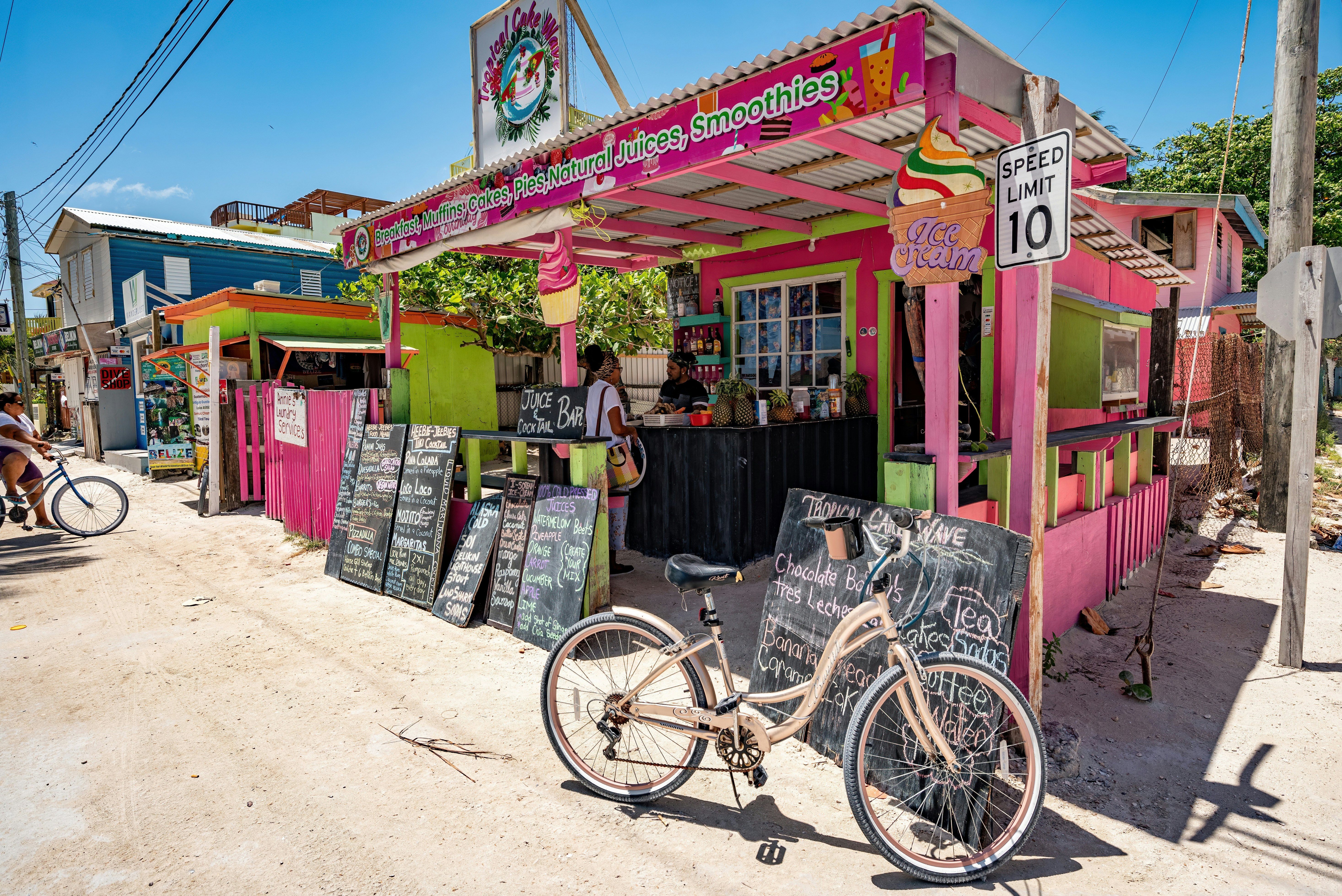
Annatto-spiced stewed chicken, soft pockets of fried dough called fry jacks and spiced chimole soup that’s black as onyx: the fusion of Central American and Caribbean cuisine here surprise you. (It’s sure tastier than mere rice and beans.) Because for every person that loves Costa Rican coffee, there’s another that adores award-winning Belizean chocolate. All it takes is one taste of bite-sized Belize to be hooked.
Costa Rica is the clear choice
Mara is co-author of Lonely Planet’s guide to Costa Rica – a country she has been traveling to and writing about for nearly three decades.
Way back in 1996, when I arrived in Costa Rica for the first time, I made a beeline to the Península de Osa with the hope of getting into the rainforest and spying some wildlife. The monkeys did not disappoint, and I fell in love with this wild and wonderful corner of this country. The vast expanse of coastal forest, the scarlet macaws squawking overhead, the rustic yet luxurious eco-lodges: I was hooked – and craved more.

Nearly 30 years later, after exploring every mile of this incredible isthmus, I can say with authority that every region is a destination worth discovering, from the beaches on both coasts and the majestic mountain range that cuts right down the middle, to the dry forest, the rainforest and the cloud forest – and everything in between. Sweet little Belize can hardly compete with this wonderland of biodiversity.
Sure, some places in Costa Rica are more developed and more touristy than others – but given the range of places to visit in this vacation paradise, it’s far from overrun. At present, this forward-looking nation protects an impressive 28% of its land territory and 30% of its territorial waters in the form of national parks or private reserves. Do some of the more-popular destinations get crowded during the high tourist season? Yes – but there are many more places that still feel undiscovered. You don’t have to be Francis Drake to find a deserted beach or empty patch of wilderness to explore.
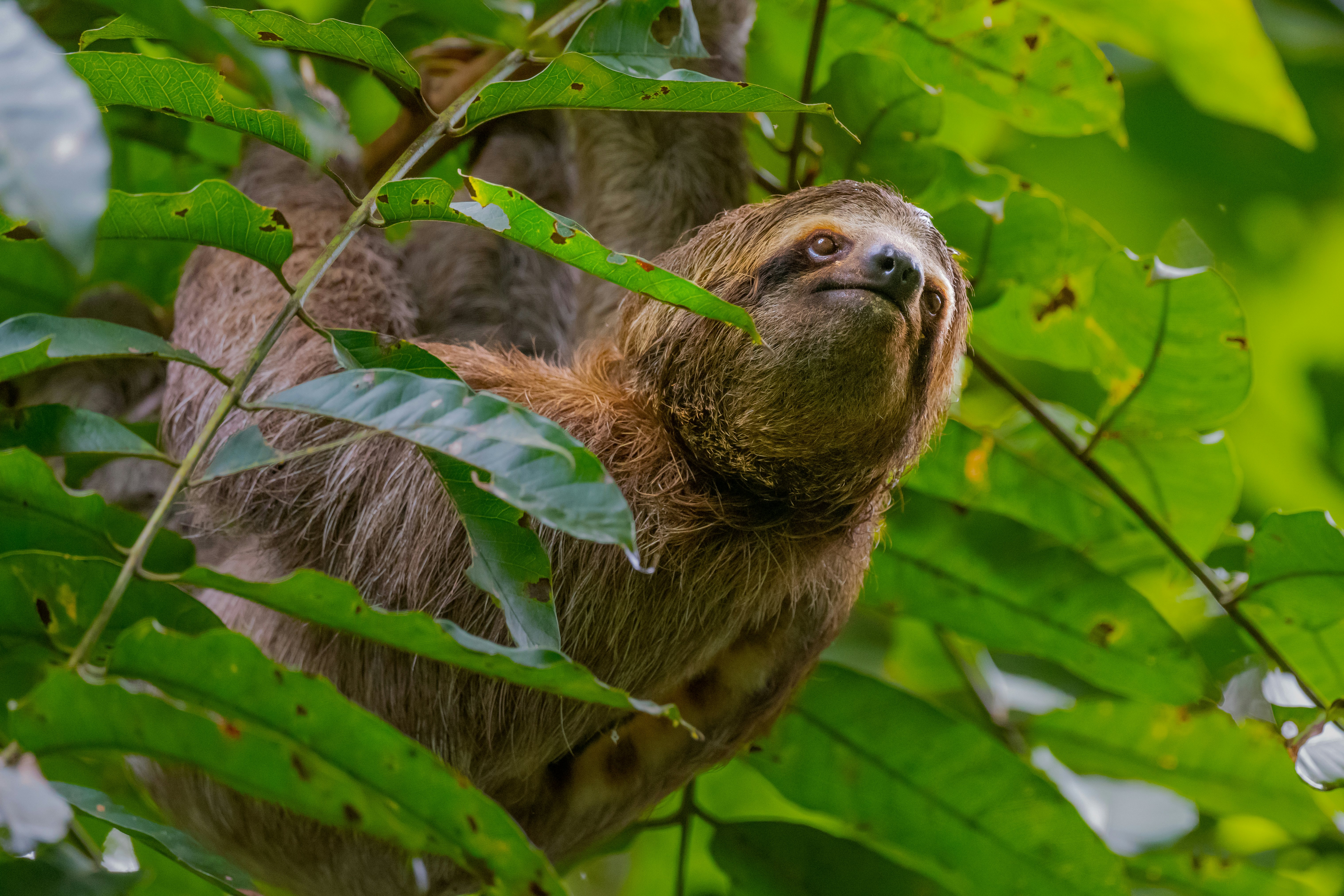
By protecting its land and waters, Costa Rica preserves the habitats of an incredible diversity of creatures. It’s not just the monkeys (although the four species found here are charismatic indeed). You also might spot smiling sloths, nosy coatis, quirky agoutis, hungry anteaters, lumbering tapirs, basking iguanas, toothy caimans and countless other animals. An incredible 850 species of birds flutter through these parts. Costa Rica’s fauna is the country’s premier attraction, and you can see it all in its natural habitat. In fact, you’re likely to see it without even looking for it.
Meanwhile, up the coast, the Belize Zoo is a big attraction.
Do you like hanging out on stunning beaches? I thought so. Costa Rica has over 200 strands on two different coastlines to sample, with beaches for surfing, snorkeling, swimming or just sunbathing. (Did we mention surfing, some of the world’s best?) There are wild, deserted beaches backed by dense forest, and there are more civilized beaches with chaise lounges and beach bars. They don’t call this country the “rich coast” for nothing.

Venture away from the coast and the landscape changes dramatically, rising into the lush forest-covered mountains that define this country. A series of stunning volcanic peaks beckons visitors to peer into their steaming craters and soak in their thermal pools. Cloud forests – swirling with mist and dripping with epiphytes – invite explorers to soar through the treetops and swim under luscious waterfalls. The country’s highest peak, Cerro Chirripó, rewards hikers with spectacular vistas stretching to both coasts.
Unfortunately for Belize, the minute Maya Mountains can hardly compare to these majestic beauties.

The appeal of Costa Rica is best summed up by two words: pura vida. Pure life. You’ll hear this expression frequently on any visit, offered as a sincere wish that you might enjoy your time in this modern-day Eden. It’s a valediction, an affirmation and a state of mind, reflecting an appreciation for the awesomeness of the natural world and our role in it.
Sure beats “you better Belize it.”





